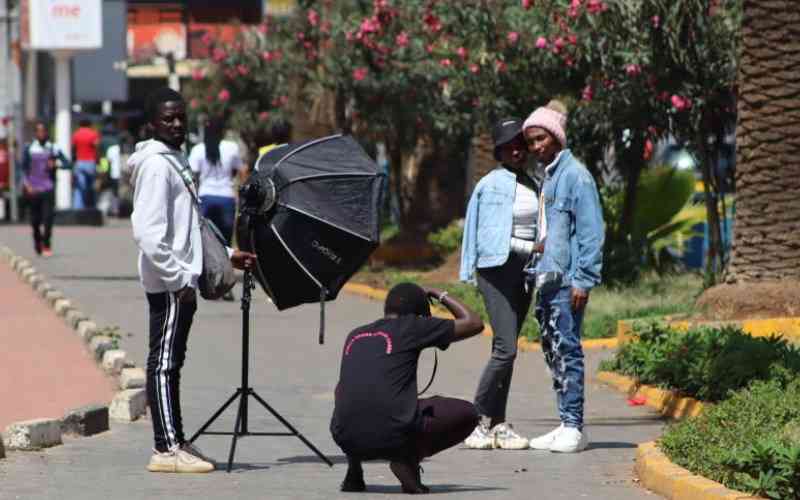×
The Standard e-Paper
Join Thousands Daily

Street photography was first associated with Paris and renowned figures like Henri Cartier-Bresson, Brassai, and Andre Kertesz before being acknowledged as a distinct genre in the early 1930s.
Today, in Nairobi's CBD, an army of photographers with their kits has become a common sight, all training their cameras on those willing to have their photos taken at a fee.